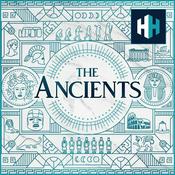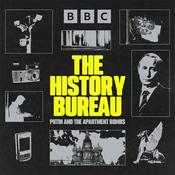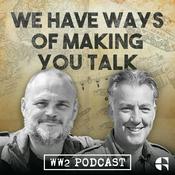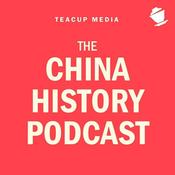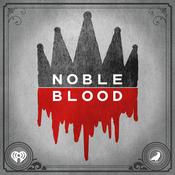229 episodes
- ఎపిసోడ్ 227 – కోహినూర్: శాపిత మణి లేదా సామ్రాజ్య చిహ్నం?
ఈ ఎపిసోడ్లో, ప్రపంచ ప్రసిద్ధి పొందిన కోహినూర్ వజ్రం వెనుక 숨겨ున్న శతాబ్దాల చరిత్రను ఆవిష్కరిస్తాం. గోల్కొండ గనుల నుండి మొదలై, కాకతీయుల పూజామణిగా ఉండి, మొఘలుల ఖజానాలో వెలుగునిచ్చి, పెర్షియన్ దండయాత్రలు, ఆఫ్ఘన్ పాలకులు, సిక్కు మహారాజుల చేతుల మీదుగా ప్రయాణించి, చివరికి బ్రిటిష్ రాజకీయం గర్వంగా ప్రదర్శించే లండన్ టవర్ వరకు ఎలా చేరిందో ఈ కథలో తేలుస్తాం.
ఈ వజ్రం కేవలం అందమైన రాయి మాత్రమే కాదు—ఇది అధికారం, ఆక్రమణ, ఆత్మగౌరవం, మరియు సంస్కృతుల ముడిపాటు ప్రతీక. దాని చుట్టూ పేరుకున్న శాపాలు, ద్రోహాలు, మరియు ఆధిపత్య గాథల మధ్య, ప్రతి సామ్రాజ్యమే దీన్ని తనదిగా ప్రకటించుకునే ప్రయత్నం చేసింది. కానీ ప్రశ్న అదే: కోహినూర్ నిజంగా ఎవరిది? దాన్ని తిరిగి ఇవ్వాలా? లేక అది చరిత్రలో ప్రతి శక్తి తాకిన కలబోతగల గుర్తుగా ఉండిపోవాలా? ఈ ఆలోచనల మధ్య మనం ఈ వజ్రంలోని వెలకట్టలేని చరిత్రలోకి ప్రయాణించబోతున్నాం. २२६ - कोह-ए-नूर हीरा (एस१५ई४) - अब हिंदी में [226 - Koh-I-Noor Diamond (S15E4) - Experiment in Hindi]
06/7/2025 | 7 mins.भारत के इतिहास की इस आकर्षक कड़ी में, हम कोह-ए-नूर हीरे की किंवदंती भरी यात्रा का पीछा करते हैं — उसके गोलकोंडा की खदानों में चमकदार उद्गम से लेकर ब्रिटिश क्राउन ज्वेल्स में उसके विवादास्पद ठिकाने तक। यह केवल एक रत्न नहीं, बल्कि साम्राज्य, महत्वाकांक्षा और इतिहास की हिंसक लहरों का प्रतीक है। जीवंत कहानी के माध्यम से, हम देखते हैं कि यह हीरा कैसे काकतीय राजाओं, मुग़ल सम्राटों, फ़ारसी आक्रमणकारियों, अफ़ग़ान वंशों और सिख शासकों के हाथों से गुज़रता है — हर एक इसकी विरासत पर अपनी छाप छोड़ता है। हम खोजते हैं कि यह रत्न कैसे भारत में एक आध्यात्मिक और साम्राज्यिक चिह्न से उपनिवेशवादी विजय की चमचमाती ट्रॉफी बन गया।
लेकिन कहानी क्वीन विक्टोरिया पर समाप्त नहीं होती। यह एपिसोड आधुनिक समय में उसके स्वामित्व को लेकर चल रही लड़ाई, सांस्कृतिक पुनर्स्थापन, और उपनिवेशोत्तर स्मृति की परतों को भी खोलता है। कोह-ए-नूर उन लोगों के लिए क्या दर्शाता है जिनसे यह छीना गया था? क्या इसे वास्तव में कभी वापस लौटाया जा सकता है — या इसकी कहानी अब पूरे विश्व की हो चुकी है? हम भारत से लेकर लंदन तक न्यायालयों और संग्रहालयों में चल रही कानूनी और प्रतीकात्मक बहसों का विश्लेषण करते हैं। ऐतिहासिक दृष्टि और नैतिक गहराई के साथ, यह कड़ी श्रोताओं को उपनिवेशवाद, विरासत, और 21वीं सदी में सांस्कृतिक धरोहर के मायनों पर गंभीरता से सोचने के लिए आमंत्रित करती है।- In this captivating episode of A History of India, we trace the legendary journey of the Koh-i-Noor diamond—from its dazzling origins in the Golconda mines to its controversial home in the British Crown Jewels. More than just a gem, the Koh-i-Noor is a symbol of empire, ambition, and the violent tides of history. Through vivid storytelling, we follow the diamond as it passes through the hands of Kakatiya kings, Mughal emperors, Persian invaders, Afghan dynasties, and Sikh rulers—each leaving their mark on its legacy. We explore how the gem transformed from a spiritual and imperial emblem in India to a glittering trophy of colonial conquest. Myths, curses, and divine tales deepen the diamond’s lore, revealing its unique place in both history and imagination.
But the story doesn't end with Queen Victoria. This episode also delves into the modern battle over ownership, cultural restitution, and postcolonial memory. What does the Koh-i-Noor represent to those it was taken from? Can it ever be truly returned—or does its history now belong to the world? We examine the legal and symbolic debates playing out in courts and museums, from India to London. With historical insight and moral urgency, this episode invites listeners to confront uncomfortable truths about colonialism, legacy, and the meaning of cultural heritage in the 21st century. 224 - Natural Products Unique to the Indian Subcontinent an Introduction to Ayurvedic Medicine (S15E2)
19/6/2025 | 45 mins.In this deeply immersive episode of The Deep Dive, we journey into the heart of India’s "living pharmacy"—a vibrant, centuries-old tradition of healing rooted in Ayurveda. From the rejuvenating powers of Ashwagandha to the detoxifying force of Neem, and the golden promise of Turmeric to the immune-boosting brilliance of Amla, we explore the profound therapeutic properties of these iconic botanicals. You'll discover how ancient Ayurvedic knowledge isn’t just surviving—it’s thriving, increasingly validated by modern pharmacology, neuroscience, and clinical research. We also highlight Rauwolfia serpentina, the plant that gave rise to the landmark antihypertensive drug Reserpine, illustrating the powerful bridge between tradition and biomedicine. These natural remedies are more than folk wisdom—they are pharmacologically potent agents of wellness with global significance.
But Ayurveda goes far beyond herbs. We dive into its philosophical framework, from the Tridosha theory and personalized nutrition to detoxification rituals like Panchakarma, pulse diagnostics, and daily practices like self-oil massage and pranayama. You'll learn how Ayurveda views food, breath, movement, and even color and scent as medicine—all integrated into a holistic system of health. The episode also investigates the path toward evidence-based Ayurveda, including regulatory reforms, clinical trials, and pressing issues like heavy metal safety. Whether you're a wellness enthusiast, a health professional, or a curious skeptic, this episode offers a rich tapestry of insights into one of the world’s most enduring and evolving medical traditions. Prepare to rethink what it means to be truly healthy—body, mind, and spirit.- Welcome deep divers to Season 14! We're setting our compass for the island nation of Sri Lanka, known through history as Taprobane, the Island of Gems, or Second Eden. This tiny dot on the map holds an incredibly expansive, ancient, and complex past, profoundly shaping not only its own vibrant identity but also its pivotal position within South Asia and the global stage. This episode is a sweeping journey through its entire history, from the earliest whispers of human settlement right up to its very modern challenges. We draw on diverse sources, including archaeological findings, ancient chronicles like the Mahavamsa, scholarly histories, and colonial archives, to highlight what makes Sri Lanka so distinctive. We'll explore its crucial maritime location, its unique evolution of Buddhist traditions, its truly multi-ethnic makeup, and its enduring resilience through centuries of upheaval. Our dive begins with the island's deep past, exploring evidence of prehistoric humans dating back tens of thousands of years and periods when it was connected to the Indian mainland. We'll trace the rise of complex state formation and the golden age of kingdoms like Anuradhapura and Polonnaruwa, marked by monumental achievements and unique religious shifts. The narrative then shifts to periods of fragmentation, external influence, and the deep historical roots of its multi-ethnic communities, including the Sri Lankan Tamils and Muslims. We examine the disruptive arrival of colonial powers—Portuguese, Dutch, and British—which dramatically reshaped the economy and society. Finally, we navigate the painful legacy of ethnic tensions culminating in decades of civil conflict and arrive at modern Sri Lanka, grappling with severe economic crises and complex geopolitical realignments.
More History podcasts
Trending History podcasts
About A History of India
Welcome to an extraordinary exploration of Indian history, presented as a 180-episode podcast series designed to be both engaging and enlightening! This series utilizes innovative AI tools, including Google's Notebook LM, to make the 5000-year history of India accessible and deeply meaningful for history enthusiasts and college graduates alike.Here's what you can anticipate on this exciting historical journey:Comprehensive Coverage: The series spans from prehistoric settlements (c. 7000 BCE) to contemporary India, ensuring a thorough exploration of the subcontinent's history.Spiraling Learning Approach: Key themes and events will be revisited throughout the series, each time building upon prior knowledge with new insights and added depth, much like climbing a mountain in gradual circles to gain ever-broader perspectives.Expert Sources: Each episode draws upon a wealth of scholarly texts, integrating ancient literature, archaeological studies, and modern analyses to provide a multifaceted understanding. For example, the series draws on Chandra's India Condensed and Kulke's A History of India.Engaging Narration: Complex concepts are elucidated through vivid analogies, and a conversational tone balances scholarly rigor with compelling storytelling.Key Historical Periods and Themes:Prehistoric India, the Indus, and Early Vedic Beginnings (c. 7000–1500 BCE): Discover early human habitation, the decline of the Indus Valley Civilization, and the cultural and social rebirth of the Vedic Age.Mahajanapadas, Early Buddhism & Jainism (c. 600–300 BCE): Explore the rise of powerful states, urbanization, and the birth of Buddhism.The Maurya Empire and Its Transformation (322–185 BCE): Uncover the dramatic rise of one of India's first major unifying forces and its lasting impact.The Gupta Era – The Golden Age (c. 320–550 CE): Delve into the administrative, scientific, and cultural breakthroughs that define this period.Southern Kingdoms and Regional Diversity (c. 300–1500 CE): Introduce the vibrant southern kingdoms of India and their distinct political systems and cultural achievements.Medieval India – The Delhi Sultanate (c. 1206–1526 CE): Set the stage for a deep exploration of the Delhi Sultanate's multifaceted legacy.Vijayanagara and the Regional Sultanates (c. 1336–1646 CE): Uncover the origins of the Vijayanagara Empire and its political organization.The Mughal Empire (c. 1526–1707 CE): Highlights the origins, cultural influences, and transformative impact the Mughal Empire had on politics, art, and society.Decline of the Mughals and the Rise of Regional Powers (c. 1707–1757 CE): Summarize the key themes of the transition period from the decline of regional powers to the onset of colonial dominance.Colonial India – British Rule (c. 1757–1947 CE): Introduce the era of British colonialism in India and the evolution of trade networks.The Struggle for Independence & Modern India (c. 1857–Present): Chart the long journey from colonial oppression to modern independence.Support me on Patreonpatreon.com/FirstPenguinProductionsBuy me a coffee!!!https://buymeacoffee.com/wan4hitgwh
Podcast websiteListen to A History of India, Short History Of... and many other podcasts from around the world with the radio.net app
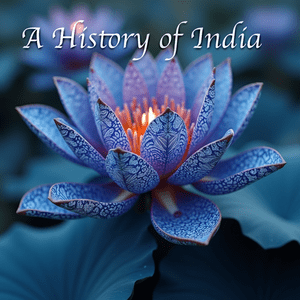
Get the free radio.net app
- Stations and podcasts to bookmark
- Stream via Wi-Fi or Bluetooth
- Supports Carplay & Android Auto
- Many other app features
Get the free radio.net app
- Stations and podcasts to bookmark
- Stream via Wi-Fi or Bluetooth
- Supports Carplay & Android Auto
- Many other app features


A History of India
Scan code,
download the app,
start listening.
download the app,
start listening.


